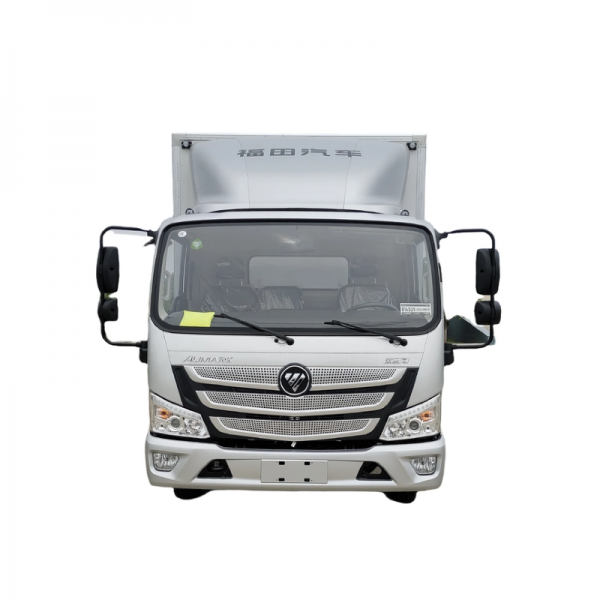Introduction:
Truck mounted cranes are essential pieces of equipment used in various industries such as construction, transportation, and logistics. These powerful machines are designed to lift and move heavy loads with ease, making them indispensable for many businesses. However, like any mechanical equipment, truck mounted cranes can experience issues that may affect their performance and functionality. In this comprehensive guide, we will explore common problems that may arise with truck mounted cranes and provide troubleshooting tips and solutions to help operators address these issues effectively.
1. Electrical System Issues:
One of the most common problems that operators may encounter with truck mounted cranes is related to the electrical system. Electrical issues can cause the crane to malfunction or fail to operate altogether. Some common electrical system problems include:
- Dead batteries: If the crane fails to start or the electrical components are not functioning properly, the first thing to check is the batteries. Dead or low batteries can prevent the crane from operating correctly. Solutions include checking the battery connections, recharging or replacing the batteries as needed.
- Faulty wiring: Wiring issues can cause various electrical problems with the crane, such as lights not working, controls malfunctioning, or the crane not responding to commands. To troubleshoot wiring problems, operators should inspect the wiring harness for any damage, loose connections, or corrosion. Repairs may involve re-routing or replacing damaged wiring.

- Fuse problems: Blown fuses can disrupt the electrical system and prevent the crane from operating. Operators should check the fuses and replace any that are blown with the correct amperage rating. It is essential to identify and address the root cause of the fuse blowing to prevent future issues.
2. Hydraulic System Troubleshooting:
The hydraulic system is a critical component of truck mounted cranes that enables them to lift and move heavy loads efficiently. Hydraulic system problems can significantly impact the crane's performance and safety. Common hydraulic system issues include:
- Low hydraulic fluid: Insufficient hydraulic fluid can cause the crane to operate sluggishly or fail to lift loads properly. Operators should check the hydraulic fluid level and top up as needed. It is essential to use the correct type of hydraulic fluid recommended by the crane manufacturer.
- Hydraulic leaks: Leaks in the hydraulic system can result in fluid loss, reduced lifting capacity, and potential safety hazards. Operators should inspect the hydraulic hoses, fittings, and seals for any signs of leaks. Leaking components should be repaired or replaced promptly to prevent further damage.
- Slow operation: If the crane's hydraulic system is operating slowly, it may be due to air in the system, a clogged filter, or worn-out components. Operators should bleed the hydraulic system to remove air bubbles, replace the filter if it is dirty, and inspect the hydraulic cylinders and valves for wear and tear.
3. Structural and Mechanical Issues:
In addition to electrical and hydraulic system problems, truck mounted cranes may experience structural and mechanical issues that can affect their performance and safety. Some common structural and mechanical problems include:
- Boom misalignment: Misaligned booms can cause the crane to operate erratically and compromise lifting capacity. Operators should inspect the boom alignment and adjust it as needed to ensure smooth and safe operation.
- Worn-out components: Over time, components such as bearings, pulleys, and cables may wear out due to regular use and environmental factors. Operators should regularly inspect these components for signs of wear and tear and replace them as necessary to maintain the crane's performance and safety.
- Overheating: Excessive heat buildup in the crane's engine or hydraulic system can result in overheating and potential damage to components. Operators should monitor the temperature gauges and address any overheating issues promptly by checking coolant levels, cleaning radiators, and ensuring proper airflow.
4. Truck Mounted Crane vehicle wraps and Safety Concerns:
In addition to technical issues, operators should be aware of operational and safety concerns when using truck mounted cranes. Proper training, maintenance, and adherence to safety protocols are essential to prevent accidents and ensure the crane's longevity. Some operational and safety tips include:
- Operator training: Operators should undergo comprehensive training on crane operation, safety procedures, and maintenance practices to ensure safe and efficient use of the equipment. Regular training and certification programs can help operators stay updated on the latest industry standards and best practices.
- Pre-operational inspections: Before using the crane, operators should perform pre-operational inspections to check for any visible damage, leaks, or other issues that may affect performance or safety. Inspecting critical components such as the boom, cables, and controls can help prevent accidents and downtime.
- Load capacity and stability: Operators should be aware of the crane's load capacity and stability limits to prevent overloading and tipping hazards. Following the manufacturer's guidelines on load capacity, boom extension, and outrigger deployment is crucial for safe crane operation.
Conclusion:
Truck mounted cranes are powerful and versatile machines that play a crucial role in various industries. However, like any equipment, they can experience issues that may affect their performance and safety. By understanding common problems and following the troubleshooting tips and solutions outlined in this guide, operators can effectively address issues with truck mounted cranes and ensure their reliable operation. Regular maintenance, proper training, and adherence to safety protocols are essential to maximize the lifespan and efficiency of truck mounted cranes.
